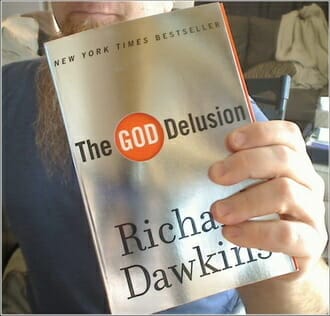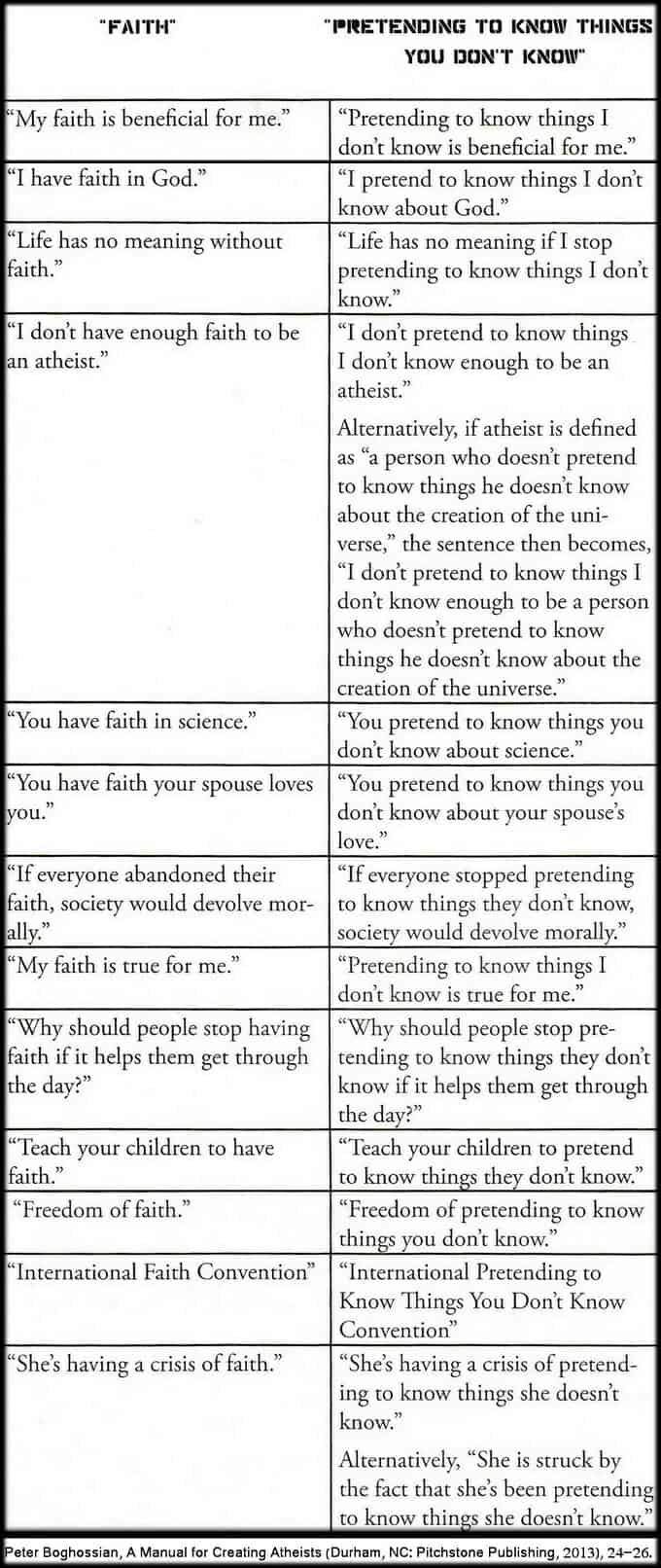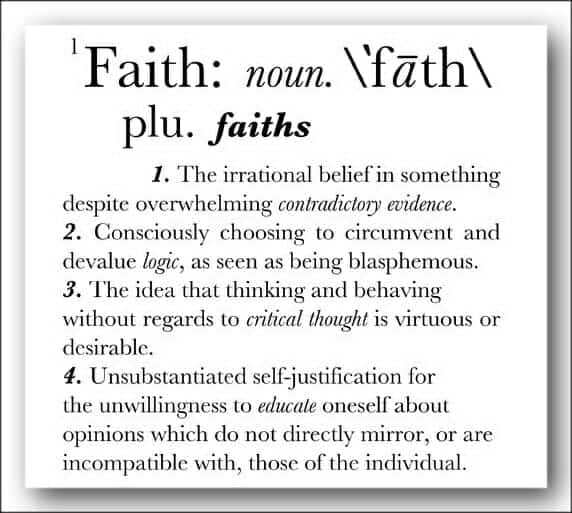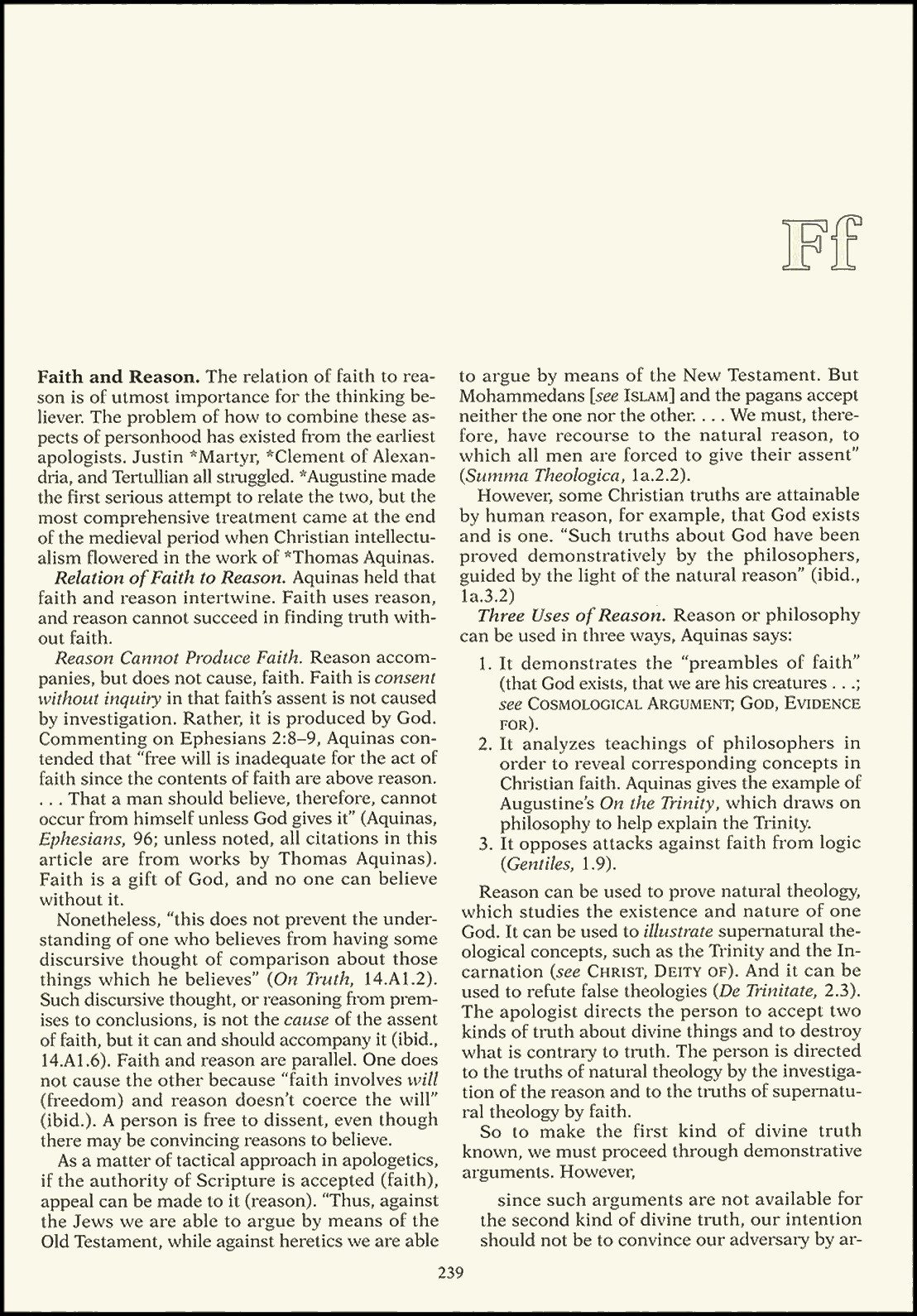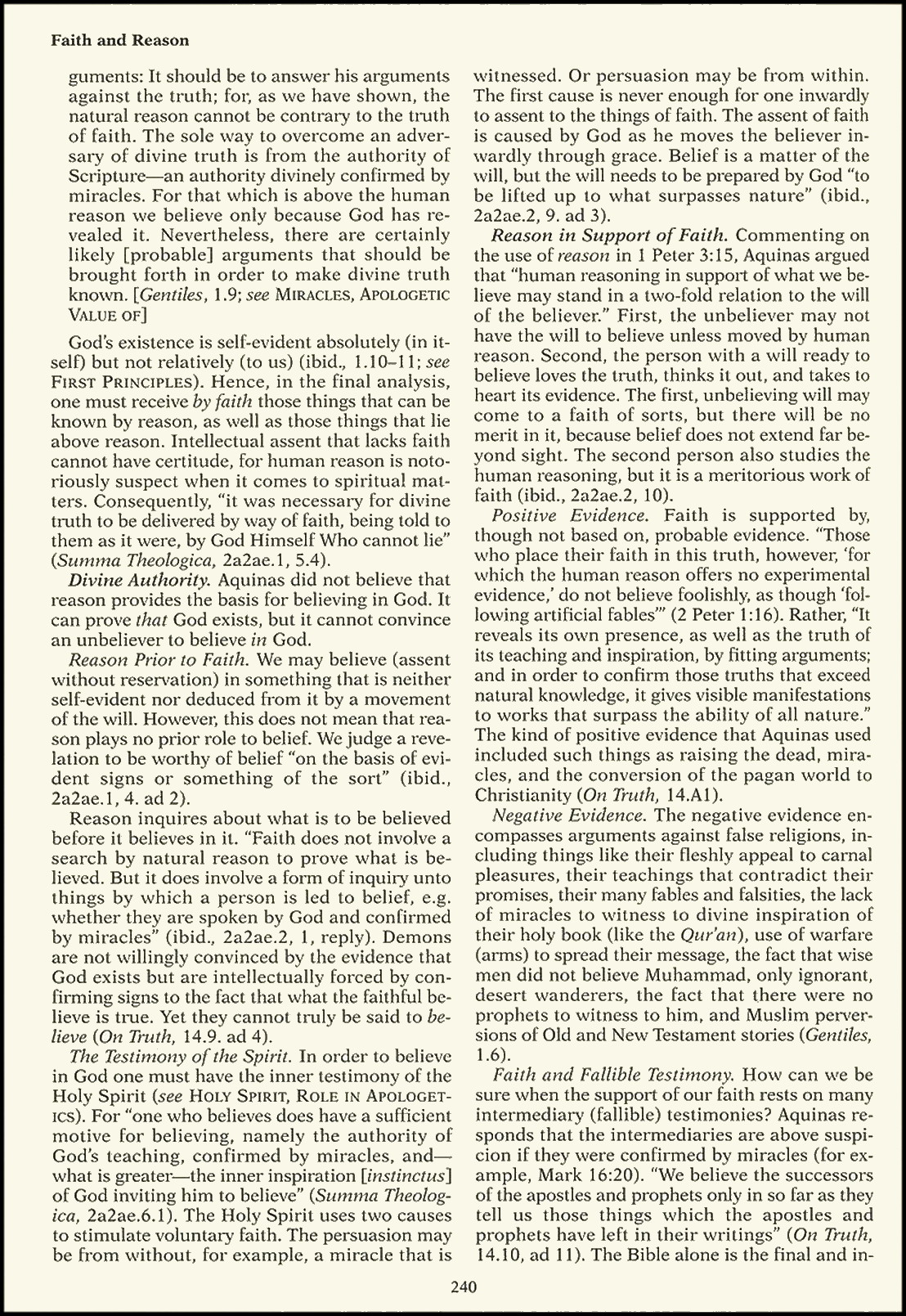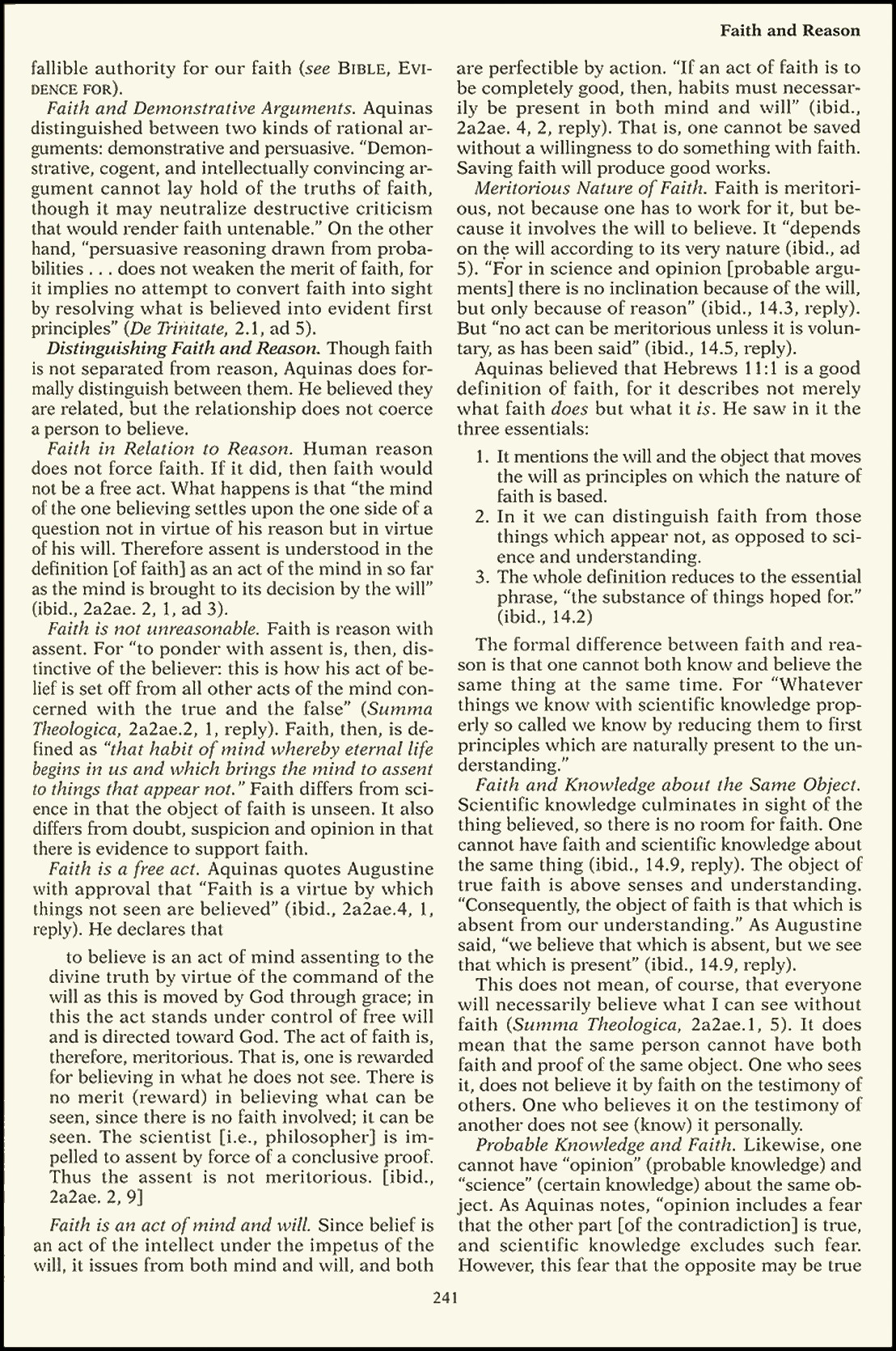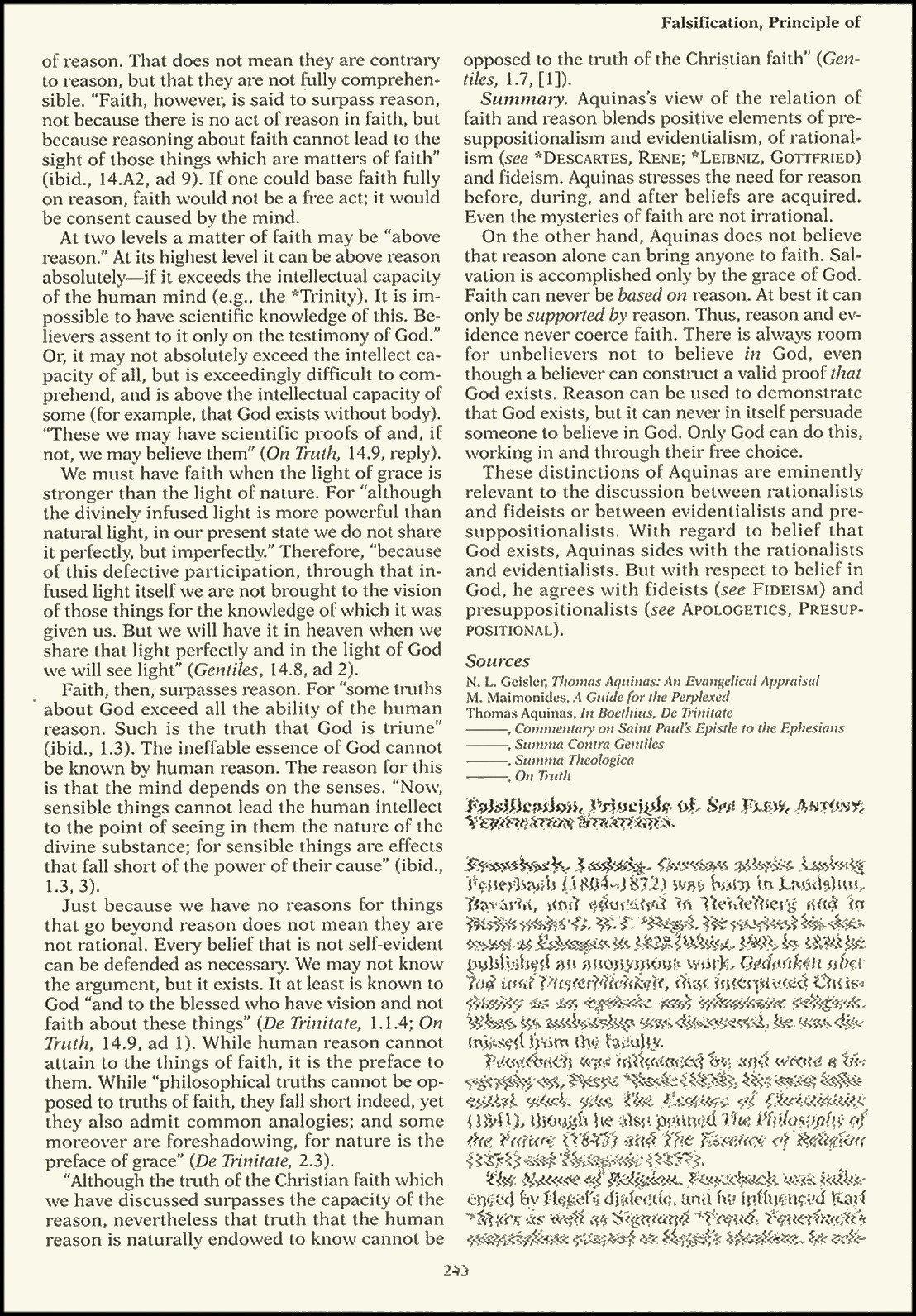RE-POST
(Originally Posted In February 2017)
I just wanted to update the below a bit with a great explanation of how theists view evidential propositions about God as compared to agnostics and atheists. Tim Stratton makes a great short example of what is being discussed in the below — but clearer: “ATHEISM: LACK OF BELIEF OR BLIND FAITH?“
Many atheists claim that their atheistic beliefs are just as viable as my theistic beliefs. Typically, the following scale (or something similar) is provided:
1- God exists (100% certainty)
2- God probably exists (51%-99% certainty)
3- Neutral Agnostic (50%/50%)
4- God probably does not exist (51%-99% certainty)
5- God does not exist (100% certainty)
I have claimed to hold to proposition (2) as a theist. Because of a cumulative case of coherent reasons (backed up by evidence), I believe theism is probably true with extremely high degrees of certainty (say, 97% certainty). Although I am not 100% certain (but have justification to believe God probably exists), it is quite reasonable to put my faith in what is probably true. This is why Christian theism is a reasonable faith.
Many atheists ignore the plethora of arguments and evidence for God and attempt to make the same move on the other side of the scale. However, they run into the same problems I discussed above. If they claim to hold to proposition (4), then they need to provide coherent reasons (backed up by evidence) as to why they think atheism is “probably true.” Why has the belief needle moved from (3), neutral agnosticism, to proposition (4)? If there are no logical answers then the atheist holds this view for no good reason at all (especially while ignoring the cumulative case for the existence of God). Indeed, their commitment to this definition of atheism is still nothing but a blind faith.
I reside when discussing apologetics with persons in category two. If I feel moved to pray a sinners prayer with a person, I am speaking from category one, and the person who is inviting the Holy Spirit into their life is falling into that category as well. “… fundamentally, the way we know Christianity to be true is by the self-authenticating witness of God’s Holy Spirit.” Tim’s whole post is worth reading
HOW ATHEISTS VIEW CHRISTIAN’S FAITH
- Faith in the prayer-hearing God is an unproved and outmoded faith. There is no God and there is no soul. Hence, there are no needs for the props of traditional religion. With dogma and creed excluded, the immutable [i.e., unchangeable] truth is also dead and buried. There is no room for fixed, natural law or moral absolutes. ~ John Dewey
John Dewey, “Soul-Searching,” Teacher Magazine, September 1933, p. 33.
- There are those who scoff at the schoolboy, calling him frivolous and shallow. Yet it was the schoolboy who said : “Faith is believing what you know ain’t so.” ~ Mark Twain
Caroline Thomas Harnsberger, Mark Twain at Your Fingertips: A Book of Quotations (Mineola, NY: Dover Publications, 2009), 116, cf. faith.
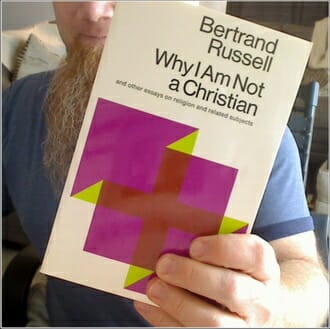
- I am as firmly convinced that religions do harm as I am that they are untrue. The harm that is done by a religion is of two sorts, the one depending on the kind of belief which it is thought ought to be given to it, and the other upon the particular tenets believed. As regards the kind of belief: it is thought virtuous to have Faith—that is to say, to have a conviction which cannot be shaken by contrary evidence. Or, if contrary evidence might induce doubt, it is held that contrary evidence must be suppressed. On such grounds, the young are not allowed to hear arguments…. The consequence is that the minds of the young are stunted and are filled with fanatical hostility both to those who have other fanaticisms and, even more virulently, to those who object to all fanaticisms. ~ Bertrand Russell
Bertrand Russell, Why I Am Not a Christian: And Other Essays on Religion and Related Subjects (New York, NY; Simon and Schuster, 1957), vi.
(See response to Russell’s “induce doubt” portion at bottom)
According to the A Manual for Creating Atheists, faith is:
- “pretending to know things that you don’t know”
- “belief without evidence”
- The author calls faith “an unreliable epistemology”
- a “virus”
- and calls for a process and agenda that will “ultimately eradicate faith”.
(Bullet points via THE CONFIDENT CHRISTIAN)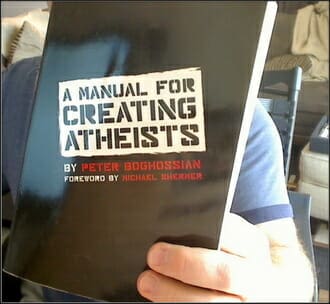
Two Definitions of Faith
The words we use are important. They can help us see clearly, or they can confuse, cloud, or obscure issues. I’ll now offer my two preferred definitions of faith, and then disambiguate faith from hope.’
faith /fāTH/
1. Belief without evidence.
“My definition of faith is that it’s a leap over the probabilities. It fills in the gap between what is improbable to make something more probable than not without faith. As such, faith is an irrational leap over the probabilities.”
—John W. Loftus, “Victor Reppert Now Says He Doesn’t Have Faith!” (Loftus, 2012)
If one had sufficient evidence to warrant belief in a particular claim, then one wouldn’t believe the claim on the basis of faith. “Faith” is the word one uses when one does not have enough evidence to justify holding a belief, but when one just goes ahead and believes anyway.
Another way to think about “belief without evidence” is to think of an irrational leap over probabilities. For example, assume that an historical Jesus existed and was crucified, and that his corpse was placed in a tomb. Assume also that eyewitness accounts were accurate, and days later the tomb was empty.
One can believe the corpse was missing for any number of reasons. For example, one can believe the body arose from the dead and ascended to heaven, one can believe aliens brought the body back to life, or one can believe an ancient spirit trapped in the tomb merged with the corpse and animated it. Belief in any of these claims would require faith because there’s insufficient evidence to justify any one of these particular options.
Belief in any of these claims would also disregard other, far more likely possibilities—for example, that the corpse was stolen, hidden, or moved.
If one claims knowledge either in the absence of evidence, or when a claim is contradicted by evidence, then this is when the word “faith” is used. “Believing something anyway” is an accurate definition of the term “faith.”
faith /fāTH/
2. Pretending to know things you don’t know.
Not everything that’s a case of pretending to know things you don’t know is a case of faith, but cases of faith are instances of pretending to know something you don’t know.’ For example, someone who knows nothing about baking a cake can pretend to know how to bake a cake, and this is not an instance of faith. But if someone claims to know something on the basis of faith, they are pretending to know something they don’t know. For example, using faith would be like someone giving advice about baking cookies who has never been in a kitchen.
As a Street Epistemologist, whenever you hear the word “faith,” just translate this in your head as, “pretending to know things you don’t know.” While swapping these words may make the sentence clunky, “pretending to know things you don’t know” will make the meaning of the sentence clearer.
To start thinking in these terms, the following table contains commonly heard expressions using the word “faith” in column one, and the same expressions substituted with the words “pretending to know things you don’t know” in column two.
- Peter Boghossian, A Manual for Creating Atheists (Durham, NC: Pitchstone Publishing, 2013), 23-26
- I regard faith as religious belief which is held without evidence. If someone thinks that a bus will arrive on time per its schedule, then that person has trust or confidence, not faith. I don’t use the word faith except to mean non-evidential religious beliefs. I work hard to identify the evidence, so faith for me is an lazy, easy way out.
~ Logicel
(See the response to “has trust or confidence” portion of Logicel’s definition at the bottom)
LETTING CHRISTIANS DEFINE FAITH
faith 1. Objective body of truth in the Bible, the creeds, the definitions of the universal councils, and/or the teachings of the church. 2. Positive, subjective, and personal allegiance to and trust in Jesus Christ as Lord and Savior. Faith exists in constant tension with three other elements: works, reason, and knowledge. In Protestant scholastic theology, faith is viewed as a threefold process: notitia (knowledge of what is to be believed), assensus (intellectual acceptance of the truth of what is believed), and fiducia (personal commitment to that truth).
The first involves reception of the message of the gospel. The second involves objective acceptance of certain theological concepts and historical events. Theologians call this fides quae creditur (the faith that is believed), comprising erkennen (recognition) and assensus (assent). Assensus includes confidence in God’s promises and trust in the events recorded in the Scripture. Peter Lombard pointed out that assensus alone is fides informis (incomplete faith).
Authentic faith must include a second aspect—a personal commitment to Jesus Christ. Theologians variously call this fides qua creditur (faith by which one believes), fides formata caritate (faith formed by love), bekennen (acknowledgment), and fiducia (trust in what is believed). Fiducia also involves obedience to God’s Word, perseverance in God’s will, and love for God’s people (John 3:36; Rom. 5:1-5; 1 Cor. 13:2; 1 John 3:1o). Thus Christians not only live because of faith but they also live according to the faith (Rom. 1:16-17). Faith is in one sense a human act, but it is also at the same time a divine gift.
George Thomas Kurian, ed., Nelson’s New Christian Dictionary (Nashville, TN: Thomas Nelson, 2001), cf. faith, 292-293.
- I suspect that most of the individuals who have religious faith are content with blind faith. They feel no obligation to understand what they believe. They may even wish not to have their beliefs disturbed by thought. But if God in whom they believe created them with intellectual and rational powers, that imposes upon them the duty to try to understand the creed of their religion. Not to do so is to verge on superstition.
Morimer J. Adler, “A Philosopher’s Religious Faith,” in, Kelly James Clark, ed., Philosophers Who Believe: The Spiritual Journeys of 11 Leading Thinkers (Downers Grove, IL: InterVarsity Press, 1993), 207.
- Certain words can mean very different things to different people. For instance, if I say to an atheist, “I have faith in God,” the atheist assumes I mean that my belief in God has nothing to do with evidence. But this isn’t what I mean by faith at all. When I say that I have faith in God, I mean that I place my trust in God based on what I know about him.
William A. Dembski and Michael R. Licona, Evidence for God: 50 Arguments for Faith from the Bible, History, Philosophy, and Science (Grand Rapids, MI: Baker Books, 2010), 38.
- Faith is not a leap in the dark; it’s the exact opposite. It’s a commitment based on evidence… It is irrational to reduce all faith to blind faith and then subject it to ridicule. That provides a very anti-intellectual and convenient way of avoiding intelligent discussion.
Personal saving faith, in the way Scripture understands it, involves more than mere knowledge. Of course it is necessary that we have some knowledge of who Christ is and what he has done, for “how are they to believe in him of whom they have never heard?” (Rom. 10:14). But knowledge about the facts of Jesus’ life, death, and resurrection for us is not enough, for people can know facts but rebel against them or dislike them. (Rom. 1:32; James 2:19)….
In addition to knowledge of the facts of the gospel and approval of those facts, in order to be saved, I must decide to depend on Jesus to save me. In doing this I move from being an interested observer of the facts of salvation and the teachings of the Bible to being someone who enters into a new relationship with Jesus Christ as a living person. We may therefore define saving faith in the following way: Saving faith is trust in Jesus Christ as a living person for forgiveness of sins and for eternal lift with God.
This definition emphasizes that saving faith is not just a belief in facts but personal trust in Jesus to save me…. The unbeliever comes to Christ seeking to have sin and guilt removed and to enter into a genuine relationship with God that will last forever.
The definition emphasizes personal trust in Christ, not just belief in facts about Christ. Because saving faith in Scripture involves this personal trust, the word “trust” is a better word to use in contemporary culture than the word “faith” or “belief.” The reason is that we can “believe” something to be true with no personal commitment or dependence involved in it. I can believe that Canberra is the capital of Australia, or that 7 times 6 is 42, but have no personal commitment or dependence on anyone when I simply believe those facts. The word faith, on the other hand, is sometimes used today to refer to an almost irrational commitment to something in spite of strong evidence to the contrary, a sort of irrational decision to believe something that we are quite sure is not true! (If your favorite football team continues to lose games, someone might encourage you to “have faith” even though all the facts point the opposite direction.) In these two popular senses, the word “belief” and the word “faith” have a meaning contrary to the biblical sense.
The word trust is closer to the biblical idea, since we are familiar with trusting persons in everyday life. The more we come to know a person, and the more we see in that person a pattern of life that warrants trust, the more we find ourselves able to place trust in that person to do what he or she promises, or to act in ways that we can rely on. This fuller sense of personal trust is indicated in several passages of Scripture in which initial saving faith is spoken of in very personal terms, often using analogies drawn from personal relationships. John says, “To all who received him, who believed in his name, he gave power to become children of God” (John 1:12). Much as we would receive a guest into our homes, John speaks of receiving Christ.
John 3:16 tells us that “whoever believes in him should not perish but have eternal life.” Here John uses a surprising phrase when he does not simply say, “whoever believes him” (that is, believes that what he says is true and able to be trusted), but rather, “whoever believes in him.” The Greek phrase pisteuo eis auton could also be translated “believe into him” with the sense of trust or confidence that goes into and rests in Jesus as a person. Leon Morris can say, “Faith, for John, is an activity which takes men right out of themselves and makes them one with Christ.” He understands the Greek phrase pisteuo eis to be a significant indication that New Testament faith is not just intellectual assent but includes a “moral element of personal trust.” Such an expression was rare or perhaps nonexistent in the secular Greek found outside the New Testament, but it was well suited to express the personal trust in Christ that is involved in saving faith.
Wayne Grudem, Systematic Theology: An Introduction To Biblical Doctrine (Grand Rapids, MI: Zondervan, 2000), 709-711.
Although suffering as a prisoner for proclaiming the gospel, Paul was not disillusioned or in despair. Why? Because of his faith. As he testifies to his faith, its essential elements become clear. “And of this gospel I was appointed a herald and an apostle and a teacher. That is why I am suffering as I am. Yet I am not ashamed, because Iknow whom I have believed, and am convinced that he is able to guard what I haveentrusted to him for that day” (2 Tim. 1:11-12). Truth about God can be known. Zeal for God without knowledge (of the Redeemer) did not suffice for monotheistic and moral Jews (Rom. 10:1-2). Neither did worship of an “unknown God” atone for the cultured Athenians (Acts 17:23-31). In contrast, Abraham was “fully persuaded that God had power to do what he had promised” (Rom. 4:21).”
The faith that saves is directed away from human educational, cultural, and religious achievements to the Creator, whose redemptive plan has been preserved and publicized in Scripture. Faith comes by hearing the message of special revelation now affirmed by the written Word of God, the hearer being convinced that “Jesus is Lord” and trusting in him (Rom. 10:4, 8-11, 14). Faith involves knowledge (notitia), persuasion (assensus), and commitment (fiducia). These three elements of faith are operative, not only when one first believes the gospel and trusts the Savior, but also in a growing faith throughout the Christian life.
Gordon R. Lewis and Bruce A. Demerest, Integrative Theology, vol. 1 (Grand Rapids, MI: Zondervan, 1994), 168-169.
- There is more than enough evidence on every hand from every department of human experience and knowledge to demonstrate that Christianity is true… It is the faith of the non-Christian [that] is externally and internally groundless. They are the ones who leap in the dark. Some, like Kierkegaard, have admitted this
Robert Morey, Introduction to Defending the Faith (Orange, CA: Christian Scholars Press, 2002), 38.
- When I was undertaking my doctoral research in molecular biology at Oxford University, I was frequently confronted with a number of theories offering to explain a given observation. In the end, I had to make a judgment concerning which of them possessed the greatest internal consistency, the greatest degree of predictive ability. Unless I was to abandon any possibility of advance in understanding, I was obliged to make such a judgment… I would claim the right to speak of the ‘superiority’ of Christianity in this explicative sense.
“Response to John Hick,” by Clark Pinnock, in More Than One Way? Four Views on Salvation in a Pluralistic World, Revised ed. (Grand Rapids, MI: Zondervan Publishing, 1996), 68.
See also:
Is Blind Faith Better Than Belief Based on Evidence?
- Evolution Cannot Account for: Logic, Reasoning, Love, Truth, or Justice
- The Definition That Will Not Die! (Transcript)
Click To Enlarge
Misc. Responses
Here is the response to Russell’s position:
Often, however, the cause of our doubt isn’t what you might think. It isn’t necessarily the strength of the arguments that rattles us, but the way they resonate with the unbeliever in each of us (what the Bible calls the “old self”). We hear Tokyo Rose’s voice and she seems to make pretty good sense sometimes. Yet more often than not, if we look closely at the atheist’s arguments, we find that there is little substance. Seeing this can change the argument’s frequency and therefore break its spell.
Believers often worry that their doubts signify the rapid approach of full-blown unbelief. But as pastor and author Tim Keller puts it,
Faith without some doubts is like a human body without any antibodies in it. People who blithely go through life too busy or indifferent to ask hard questions about why they believe as they do will find themselves defenseless against either the experience of tragedy or the probing questions of a smart skeptic.
All thoughtful believers—even those whose faith is mature—encounter doubt. Not a single person has had unadulterated faith.
In any case, it certainly won’t do to ignore your doubts, and defusing them will only strengthen your faith. To be sure, doubts can be strong enough to become a trial in your life; but like all trials, they’re meant to refine faith, not stifle it.
Mitch Stokes, A Shot of Faith: To the Head (Nashville, TN: Thomas Nelson, 2012), xvii.
Here is the response to Logicel’s position:
…faith isn’t a theory of how to know things: “Faith is not an epistemological category. It is not a way of knowing something. Faith is a way of trusting something.
“Faith is trusting in that which you have reason to believe is true. Once you have come to believe that something is true, using reliable epistemological means, you can then place your faith or trust in those things.”
~ William Lane Craig (Christinaity Today)
Here is the Comment from Professor Gray:
The definition above of faith is ha-larious! Thanks for posting it. I’m using it to show how ignorant people are about the term, faith. It is totally opposite of the real meaning that it makes quite a contrast. Faith is the substance of things believed based on evidential material, eye witnesses reports, and logical reasons to hold something as true. Those who have “faith” without the evidence are deluded and would believe anything. It is like someone believing that one species evolves into another species without any transitional evidence. Even with no evidence they continue to believe its true! Now that fits your poster’s definition. Anyway, thanks for the post. I am getting a lot of laughs by using it in my presentations.
